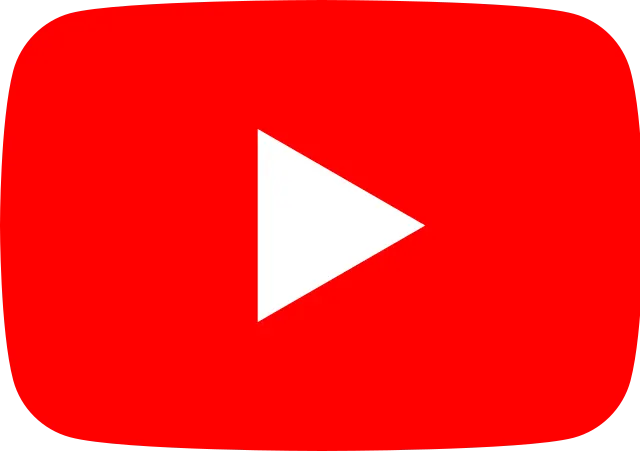From War Zones to Boardrooms
with Deborah Berlinck
The Business Simplicity Podcast hosted by Chris Parker
Episode #221 published on 17 July 2025
This episode of the Business Simplicity Podcast welcomes Deborah Berlinck, a former international journalist turned leadership coach, in a deep and inspiring conversation with Chris Parker. Together, they explore how the art of great questions, grounded presence, and neuroscience can transform how leaders connect, influence, and evolve. From reporting in conflict zones to coaching executives in moments of transition, Deborah shares insights that blend human depth with strategic clarity.
Deborah brings a rare dual perspective to the conversation. As an internationally acclaimed journalist, she has interviewed global figures from presidents to the Pope and reported from high-pressure conflict environments. Now as a coach in the Enablers Network, she helps leaders cultivate presence, emotional intelligence, and direction using insights from neuroscience and decades of real human stories.
Listeners will walk away with an understanding of what it means to lead from a “toward state,” how curiosity becomes a leadership superpower, and why real transformation begins with attention and self-awareness. Deborah also shares tools for reframing difficult conversations, managing bias, and creating trust in seconds—a necessity in both journalism and coaching.
The conversation speaks directly to leaders navigating complexity and reinvention. It offers not only clarity and insight, but also encouragement to show up more human. Whether you are a decision-maker, a transformation lead, or a reflective leader in evolution, this episode resonates with the need to listen deeper, ask better, and lead forward with grounded energy.
About the Guest
Deborah Berlinck is an internationally recognized journalist turned leadership coach, currently a core member of the Enablers Network. With decades of experience reporting from global hotspots and interviewing world leaders, she now applies that deep insight into human behavior to help executives and teams navigate transformation. Her coaching combines neuroscience, emotional intelligence, and the power of authentic connection to unlock meaningful leadership growth.
Contact Details
- Linkedin: https://www.linkedin.com/in/deborah-berlinck/
- Website: https://enablersnetwork.com/partners/deborah-berlinck/
Key Discussion Points
- What do great questions unlock in leadership?: They spark self-awareness, surface insight, and guide change without giving advice.
- How do you create trust in moments of tension?: Deborah shares tactics from both journalism and coaching that build instant rapport through empathy and relevance.
- Why is it dangerous to stay fixated on problems?: Neuroscience shows that focusing on past issues keeps us stuck; attention must shift toward future states for real change.
- What is a ‘toward state’ and why does it matter?: It’s a forward-focused mindset that invites leaders to define who they want to become, not just what they want to fix.
- How do you manage bias as a coach or leader?: By becoming aware of your own lenses and holding space for the other without judgment.
- What role does curiosity play in human connection?: Genuine, agenda-free curiosity is a profound gift that enables mutual understanding and growth.
- What are the risks of over-consuming negative news?: Constant exposure erodes optimism and agency; solution-oriented journalism and attention discipline offer a path forward.
- How does Deborah connect journalism and coaching?: Both require listening deeply, asking the right questions, and connecting to the person beyond the role.
Transcript
Chris Parker: Hello, this is Chris Parker with the Business Simplicity podcast and I had a amazing conversation with Deborah Berlinck who originally comes from Brazil and she is and was a international acclaimed journalist and is currently an international leadership coach in the Enablers Network for which I’m also a member. And we talked about her shift from journalism to coaching. And then that brought us into really the art of questioning. And not only the art of questioning, but how how does that empathetic questioning actually make true changes through neuroscience because she brings a lot of neuroscience into her work as well. So it was really an amazing conversation. Deborah, why would this be really valuable for people to listen to it?
Deborah Berlinck: Great question, Chris. And it was such a pleasure to talk to you. I would say that there are three reasons why you should listen to this podcast. First is that you should try to be yourself in the sense of you will not be a great leader if you’re trying to be someone else. So you have to first of all work on yourself. If you want to influence other people, you have to self-reflect on what do you truly want? The second which is linked to this first one is about curiosity. Be curious, genuinely curious about yourself first. This is the self-reflection part and be genuinely curious about other people because you will learn a lot from other people. You don’t know it all. And it’s great the starting point is we don’t know it all. The third reason why you should listen is that we had a wonderful discussion about change. What brings change in behaviors and it’s not what neuroscience teaches is that focusing on the problem will get us nowhere. We have to focus on what some people call a toward state which is what’s my ideal where do I want to get and that’s what you want to focus because once you realize where do you truly want to get then you can start thinking about of ways of getting there. And this is really powerful. So stop focusing on the problem and focus more on the person you want to be.
Chris Parker: Welcome to the Business Simplicity podcast where Chris Parker explores how leaders cut through complexity to accelerate strategy, execution, and growth with calm, clarity, and confidence. Welcome back to the Business Simplicity podcast. I am so excited for this conversation. I’m going to be talking with Deborah Berlinck who is previously a journalist and still is and also a leadership coach and together we are members of the Enablers Network which is a vibrant international community of very unique coaches and consultants and advisors. Everyone has a very fascinating background. And they come together to help organizations and leaders transform to the next step. And in these ages of AI and digital and disruption these types of services are needed maybe even more than ever before.
Now I know Deborah about your past because as an international journalist, you’ve been able to have an interview with Bill Gates, with previous pope. You spent a lot of time in conflict zones and on LinkedIn you have a kind of I guess a newsletter place where the anxiety pill box and one of those in there was the year you nearly died and so you were in Palestine in Gaza and that was a really a high stress situation and what we’re going to talk about today is how did those lessons, that experience that forming you in journalism has made you a world-class leadership coach. And I think that would be interesting for so many people because for me consultants know the answers and coaches know the questions and I think as a journalist, I’ve seen you give your you have a workshop on the art of great questions and it was let’s just bring that together. So maybe kick us off with just filling in some of the blanks on how did you shift from international journalist to international leadership coach. How did that shift happen? And then let’s dive into maybe the similarities and differences between the two. I’m just really looking forward to discover this with you.
Deborah Berlinck: Fantastic. Yeah. Well, first of all, great question and very happy to be here talking to you, Chris. As I said to you before we started this conversation, it’s a pleasure to talk with you in the podcast and outside the podcast. Very much so. How did this shift come? Very good question. In fact, when I was chasing the big stories all over, I was learning a lot about people, how they behave, how they lead, how they react under deep stress. And I was learning a lot about myself as well. How do I behave under stress? How do I connect with people? I did things. I managed to get for example an interview with the president of Poland just by shouting something that made the connection about football because I knew he loved soccer, Brazilian soccer. But I also have terrible experiences with a guy I interviewed in France where the connection didn’t happen and for the first time in 40 years of journalism I had to stop the interview and say this is not working let’s do it another time for lack of connection. So journalism in many ways I always tell people that it was a school of life for me.
And after journalism I think the coming from this very exciting world of being always on the road always in airports always under pressure to the quiet space of coaching it’s equally powerful and I love bringing all this energy that I of the experiences I had and simply being in this quiet space where I can really use some of the best skills journalists gave me which is to listen actively listen. This is the number one skill in journalism even more than questions sometimes and this is why coaching was a natural next step in my life maybe.
Chris Parker: Well I’m curious in coaching we ask questions sometimes very confronting questions and you need but you need to be have that vibe and that connection and in a way you need to be invited to coach, because I think the worst thing is you start coaching people who are like, well, I don’t I don’t need to change, who are you? So that’s something I’ve learned is to be invited to coach and then when you’re in that role to frame your questions. But the intention of that is for the coach, the person to be able to reflect and and perhaps even shift ideally shift a mindset or shift a perspective ultimately to change a behavior or to change an outcome. When you were talking to the people you were interviewing, were you seeking that they have a reflection and a shift or was it much much more that you were seeking the information for the reader for the audience to have a shift? Like was there was there something in between both like were you just gathering the data or were you actually hoping to influence as well?
Deborah Berlinck: Excellent observation which makes it there is a huge difference basically as you said what was my audience when I was a journalist the general audience. So I was less concerned in changing behavior or changing the thoughts of the person I was interviewing and I was more concerned in digging the information from that person as a journalist. But you would say okay digging the information that sounds very automatic. I’m going to dig information from Chris. But in order to dig information from Chris, to get the information I need for the public, I need to connect with you. How do I connect with you? I connect with you by paying attention to what you have to say. by creating this somehow this space of trust. So my number one challenge was always always always to create a space of trust. Can you imagine? I mean most of the time I was interviewing people who never saw me before. Why would they trust me? So that was my first step. I mean, to make sure there was a safe space where they could trust me.
Chris Parker: Well, a safe space with a journalist is not that. Yeah, I think for some of those people, I don’t Yeah, I’m not sure if you could.
Deborah Berlinck: Is not. And depending on who I had in front of me. If I have a criminal, I’m sorry, I’m not going to to be nice to you necessarily, okay? And if you happen to say something stupid, I’m not going to pretend I haven’t heard. But if I’m interviewing as I did in many cases people who were under deep stress in conflict zones for example, I would have more of I would behave more as a coach than as a journalist who wanted to dig at any price the information.
Chris Parker: Well, how did you create that safe space, that rapport very quickly? So you walk into you were talking Bill Gates and the Pope, I’m sure that wasn’t every day for you, but you were talking with influential people that were known in the press and you had achieved entry. What are some tactics, I guess, that you establish that rapport and do those things apply to coaching as well or those different worlds?
Deborah Berlinck: Well, one thing that helped me with different people, right, from the president of Poland to the Pope to the war criminal to the simple person I simply meet on the streets, I happen to knock at people’s door to ask for information. So, you can imagine I have to establish immediately a connection with this person. It’s always about putting myself into their shoes always at the beginning, right? So, and also trying to think what do they like what how could I create this first connection. So, as I said, my biggest my most amazing thing was to get this interview with the president of Poland in Warsaw. His press people were saying, “No, no, no, for I was trying for two months.” They said, “No, there’s no way. There’s no way. There’s no way.” I suddenly see the president coming towards the bathroom. Can you imagine this? Conference room towards the bathroom full of people around him. All the press person that told me no. All of the ministers and so on. Everybody’s surrounding this very powerful person. And I said, well, I have nothing to lose. I already have a no.
So, what will I lose if I try something? And I had done a lot of work about him, prepared for the preparing for the interview. And I knew he was crazy about soccer, Brazilian soccer. I said, why not? So I screamed, hello, President, here’s I’m a Brazilian journalist. I know you love soccer and so on. I just need 10 minutes. And he said something so funny. He said, “Huh? Oh, Brazil soccer. I’ve been to Maracana.” And I said, “I know you’ve been to this is the door of the bathroom was here.”
Chris Parker: Were you in the bathroom at the time?
Deborah Berlinck: No. No. No. People were trying to chase me. Who is this crazy woman trying to talk to the president? And he said, and I said, “Yes, I just need 10 minutes to talk to you.” And he said, “Just wait. I’ll go here and when I come back, we’ll talk.” Wow. And at that time it was something amazing because it was the time when Poland was joining the European Union and Poland was the that was the at the biggest time of the enlargement of the European Union and Poland was the largest country. So I said, “Wow.”
Chris Parker: So I want to pick that apart in a couple different ways, but in order for I want to come into calm is a word and maybe it’s the wrong word, but we were talking about it before we pressed record. In order for you to be empathetic in those moments of potentially high stress, to be in their shoes, and in order for you to be able to zigzag and jockey, you turn around, there’s the president of Poland walking towards you with a crowd. If you were full of anxiety and fearful, there’s no way I don’t think you could have improvised that way. So, my feeling is somehow you have created a space where you are very grounded. You turned around. You knew exactly what you intended. You needed to talk to this person. You’ve done your research and then you launched your volley. Is did you purposely chill yourself in those moments or is that just your natural state of being very situationally aware?
Deborah Berlinck: I think I didn’t think too much about it. What I think drove me to do that was the fact when you think back and you say, “Okay, I tried everything I should have tried through the official channels, what do I have to lose? Nothing. The maximum I can have is a big no, or someone shouting like get out of my way, which is not nice, but and it happens to journalists a lot. But it’s also the fact that I’ve done some homework as well. I knew I had done some research about him and that helps a lot, when you when you know someone when you’ve done some basic research about the person and you can maybe find that little thing to connect with that person. And this is something that in coaching that I bring to leaders as well, because sometimes that’s the little difference that that makes the difference, that little connection. For example, I’m going to talk to the for example when I interviewed the director general of the world trade organization this is not he was not the kind of person I’m not going to cite his name here not the kind of person that it’s very smiling or very welcoming I found out that he was a marathon runner and it happens by coincidence that I’m a marathon runner as well. So I kind of before the interview I said by the way I’ve got I’m going to run the New York marathon and he said that’s great I’ve done it. So immediately you create a connection already before the interview and the interview went quite well.
Chris Parker: And I’m curious, do you when you when you’re doing leadership coaching for executives, do you equally do that kind of research on your coaches and do you advise them to use these same kind of connection tactics with others like how do you bring this approach or these truths into your coaching work?
Deborah Berlinck: Actually in coaching is the opposite. The less you know about the company, for example, the less you know about what people say about that person, the better because you’re going to ask him the person many open questions without biases or to lower your level of biases, And so in coaching that’s different but what I try to bring into the coaching through questions is the awareness to that business leader that if he wants to establish connection there are way other ways effective ways of establishing connection with people and it’s not purely based on logic. You have to trigger something emotional. You have to, maybe touch on something that talks deeply to them.
Chris Parker: Yeah. No. Well, and this function of bias what I aspire to and it’s very much in the core of the Lead from Love with Rumi book that I wrote is to connect and see the essence of the human beyond their ego and their reputation and even the physical behaviors. Because what I find is if I’m coaching to their to the events to the situations that they create around them, those are actually a consequence of whatever is happening within them. And typically, in my experience, I’m curious what you think, executives are very lonely, meaning they don’t have someone to talk to. And so they’re probably struggling with insecurity or fear or whatever that’s going on. And what I find is to be somewhat aware of the situations that their behavior causes. And this is the hard part. How do you put that bias on pause? So I’m not thinking that, okay, this guy is just a complete asshole and you approach, because if you’re approaching with that conclusion, you’re going to have a very different outcome. So, how do you balance that being aware enough of the situations that this person’s behavior causes? Because it’s probably behavior change, in essence, you’re this person is talking to you because they want to solve a problem and they want to change something. So, how do you balance that awareness enough of what’s happening around them with the ability to connect deeply with that human?
Deborah Berlinck: Great question, Chris. And that connects very much with your book that had an impact on me, your book, because it tells about transformation starts from within, from yourself. So basically, you’re not a leader who is trying to be a great leader, he’s not going to achieve that goal. if he’s trying to be someone else. So the transformation comes from within and you say it very in a very clear way all throughout your book. This is the clear message I got from your book. And so on biases what I the way to to contain bias is maybe to be aware of your own biases. Just as a coach, you’re aware of your biases first of all and then contain it. Easy said. Very hard to do it. But how do I turn this around? I don’t want to. For example, I coached someone who had were going through were having going through having difficult behavior within the company. People would come to me to tell me stories and I said, “Okay, I don’t want to know more than that.” And what I did in my coaching is I brought constantly this person out of the problem toward in what we call in neuroscience a toward state. Instead of digging in to everything you did, what kind of person do you want to be? What kind of leader do you want to be? What is your ideal world? And what do you need to get?
Chris Parker: Can you can you expand on the toward state? So I understand clearly what you mean by toward state. My intuition says I love it and but if you can explain it a bit further that would be helpful like what like if toward state is leaning towards solution and then there’s another state which is the other way like what is the story?
Deborah Berlinck: Yeah. The story is if we keep on looking at the past, right? The past is certain. It’s something that we know. If we look at what we want to turn into, maybe this is uncertain. So our brain tends to look at problems in the past because that’s what we know, right? A toward state is Okay, Deborah, you’ve been doing this and that. You’ve been having trouble doing this and that, but what is your real goal in life? Who would you like to be? It’s a deep question, right? Like the question you maybe asked yourself at one point, do I want to be the executive in a company or do I want to be something else? So that’s this big deep question that I ask and that’s what I call what people call a toward state bring you to what you aim to be.
Chris Parker: Well touching on the Lead from Love with Rumi book something else I discovered while embracing Rumi and for those that don’t know it’s he’s a 13th century Persian mystic and poet. One of the things that resonated deeply and also made its way into the book a lot was what you pay attention to grows. This is a paraphrase. And so when you when you talked about this forward state, what I see in my own life and also in others is people are so preoccupied by the current reality and they are reacting to that current reality instead of having a properly regulated response. I’ve been reading your newsletters again. So, this reaction to response was another thing that I read in one of your posts on LinkedIn. And what I seek is instead of being a slave and fixated on my emotional reaction to the current situation or events and then what you pay attention to grows in your life. And so if you’re fixated on this problem and you keep talking about the problem or this trauma and you become identified and it becomes part of your brand, it becomes part of yourself. You just become so entrenched there you will stay there. You will not achieve a change because this is where you’re living. And then there’s a question and this why they need to talk to people like you is okay well what is that forward state? And I love the framing of that. It’s like okay yes the current reality is true now but it doesn’t need to be the truth of tomorrow and if you can shift into an understanding of what that future can be. So, how do you help people discuss like I shared with you before we were talking, I was I felt my energy was quite mixed of being drawn to an executive role and therefore the illusion of security and the title and all those ego things that come with it. While the reality of my action was very much a portfolio, as it’s rarely called interim, but I come into organizations and change things and I and I’m also invited to coach people and run like strategy and execution projects. So it’s very portfolio and what I felt with myself was pursuing these two angles was ensuring that neither was really working and then I had to make it and I consulted the meaningful people in my life and some advisors that are nearby me and came to a conclusion and said okay I’m going to go left I’m going to go pursue what I am and be a better version of that and of course if a lovely executive opportunity comes along I’ll listen to it. But if I’m chasing everything, I will catch nothing is what kind of what I found. That was my own thing. So, how do you help people come from the problem of today to shift their thinking and maybe answer it from a neuroscience perspective because I know you’re trained and certified in neuroscience as well to lean in identify and lean into that forward state and operate mentally and emotionally more from there than the pity party of today.
Deborah Berlinck: It’s basically by tapping into the person’s thinking through questions. Great. And tapping into their own thinking because there’s a lot of we most people love to give advice, right? Everybody. Yes. But your science also shows that advice is the most ineffective way to help people, right? Because everyone gives but no one receives. Exactly. Because you’re trying to solve someone else’s problem through your lenses, through your experiences. But every brain is different, my neuro circuits are not the same as yours. So what’s good for me might not be necessarily good for you. So the how do you get to the state in coaching by tapping into the thinking. That’s why we say that one of the most powerful questions you ask is what’s on your mind? what’s on your mind and what else? What I call the Nespresso question and what else? Because every time you ask and what else and what else, you’re opening up little drawers in your brain, you’re exploring other circuits other than the your natural way of doing things. And it’s interesting that you mentioned Rumi in your book 13th century he was ahead of his time because if he tells that attention it what makes the difference that’s exactly what neuroscience scanning the brains today that’s exactly what neuroscience is saying what will change behavior is attention number one focus Yes.
Chris Parker: Well, yeah, I’m not a neuroscientist by any means, but I am an avid Dr. Joe Dispenza. I know him. And he a lot of his work and practices very meditative breathing exercises and also somewhat neuroscience-based because one of the things that they talk about in that work is what fires together wires together. So and it’s going in the same direction meaning instead of continuing to talk and reminding yourself again and again and again about the trauma about the problem about the situation if you can start thinking towards the solution towards the positive and then strengthening it’s kind of I know I’m sure you’re using the wrong words but it’s like I imagine it be kind of like a muscle and you got to keep working that muscle and if you work the oh sorry, pity me muscle versus the hey, let’s move forward muscle. And establishing some new habits and some new behaviors and then allow that reality to form. No, I get it. It’s focus attention. What are you focusing on? And sorry people, if you’re focusing on TikTok, Instagram, the news, you’re focusing on the wrong thing because that’s not going to be enriching for you. it’s not going to be wholesome for you and it’s not going to be your truth. So it’s, be careful what you’re feeding your brain. I suffer from that as well. So.
Deborah Berlinck: Yeah, absolutely. And it’s very strange because I had to I mean simply by reading about the brain it had so much impact in me because like I was I suddenly and that’s very strange from a journalist to come to this conclusion but I suddenly realized that only by reading bad news that was bringing myself down and you would tend to look at the world like okay that’s how it is and you cannot change it so even maybe this is something I haven’t spoken about but I was a co-founder recently of a journalism startup and I was one of the main voices saying We’ve got to bring more of a journalism of solutions. So, showing that there are people in the world doing great things and bringing solutions to many many problems. Because if you simply listen to traditional media, if you simply read, if you only read traditional media, you get the impression, that you cannot do anything. So let people die around you. And you know, you have this sense of, that’s how the world is. And that’s not true.
Chris Parker: It’s there’s things like the Good News Network. I think that that used to be out there. There are platforms that really seek the positive. And so some criticisms that I receive when I basically say I don’t want I don’t want to know about that. I don’t want to hear about that. you can’t put your head in your sand, like, well, I would like to be aware of the situation, but I don’t want to be fixated on it. Meaning, if if I feel I’m diving into and let’s just name it, let’s talk about Ukraine, let’s talk about Palestine, let’s talk the these, a lot of situations in the world right now that that are that you can easily lose yourself in it. And as empathetic people we can start feeling as we imagine those victims on every side would be feeling and that is a horrible feeling and and I’m thinking to myself that’s not serving me and I don’t think it’s serving them either and if and if we talk about what you focus on grows equally I think if we if we pick up rifles and start fighting against these injustices. My belief is that just creates more power of these injustices. We become, a contributor to the injustice. And what I seek in my life is then, okay, well, instead of fighting against the injustice, how can I find ways to embrace and embolden and empower the justice? and what and it’s not always clear, like in always it’s not always clear how to do that. But for me, I really try to protect myself from the devastation and the sorrow and the despair of some of these situations. be aware of it, don’t ignore it, but then somehow in within myself find okay, how can I be a better more positive contribution to society instead of checking into that travesty? I don’t know this little bit side.
Deborah Berlinck: Yeah. I mean well I think journalism to be very fair we need to put the finger on what is wrong. because that’s our role. It’s an incredible part of our role. But as you said to only fix on the problem to only pay attention to the problem and dig into the problem won’t get us far as humanity let’s put it this way right so that’s why in the startup I used to say okay yes we need to put the finger on the problem but we need to discuss the solutions go and interview people who are working on solutions so that people can say okay there is a way out otherwise you simply read in the news and you say there’s no way out and just to inject a little bit of philosophy in our conversation it’s like our debates our view of the world And if I take two great philosophers, Thomas Hobbes and Immanuel Kant, they had contrasting views of human nature, right? Thomas Hobbes used to believe people are inherently selfish, and driven by power. So if your view of the world is a Hobbesian I don’t know how do you say it’s the same view as Hobbes you will act like I’m sorry to inject politics here you will act like Donald Trump power power my ways is the way and that’s how you should do it okay I want to negotiate trade. that me simply threaten to raise a tariff to 200% so that people the whole world is scared and they will finally get to the this the same tariff that I want right so that’s the Hobbes world men women we are inherently bad okay but if you look at the Kant Immanuel Kant’s world is Kant used to say that women humanities human beings are capable of morality can be driven by moral and by ethics. So it’s a you see it all starts on how do we view human nature?
Chris Parker: Well, how do you view human nature? What’s coming to my mind is there is a marvelous book, The Finite and Infinite Games and it’s not the one that was published recently. So it’s an older one and there was a statement in there that was all evil comes from someone doing what they believe is good. paraphrasing and I’m sure Trump believes what he’s doing is good of course. And I’m sure people some people consider him inherently evil. So it is the concepts of truth comes up. And what is the truth then because coming from the states and I have family friends that are that are very much in favor of Trump. they feel he’s not doing enough fast enough and I have equally the others and then I guess for me there’s a question and maybe journalism needs to learn a bit more from coaching in one way but the word I want to grab on to right now is curiosity as we are going through life in journalism cases or coaching cases is or as an audience or as an employee in an organization and you have my belief is and I’m curious what your thought is is to strive to withhold that bias-based judgments and to explore with curiosity. I had an opportunity to do this traveling to Texas to visit family recently. Completely different culture, values, beliefs, behaviors. And if I would have gone in as a liberal Californian, Western European socialist and presented myself as that, it would have been really unpleasant. But being able to be very just open and curious and discovering and go to the Baptist church and and do these things just to try to well these are incredible people. These are maybe Kantean these are empathetic incredible people doing what they absolutely believe is right for themselves their community the family that and and humanity even. And for me this was an expression of curiosity. So, how does how does curiosity what does that mean for you? Like this because I know this is some this is how I see you as well. You’re always discovering, super curious. You’re researching, you’re pursuing, neuroscience, you’re applying this to your coaching. So, there’s a boundless curiosity here. So, what does that what does that word mean to you in the concept of coaching?
Deborah Berlinck: It means a lot not only in the concept of coaching but in life in general as you mentioned if you’re not curious even to to listen to the beliefs or to pay attention to the beliefs to try to understand other people’s behavior like in the case of people who voted for Trump some people say ah they’re all bad no They’re not so bad. Not at all. They can be wonderful people. They are simply looking through life through another lens. and what curiosity brings. And I would I this was something that I always kept as a journalist, saying always always try to understand the other side, always to listen to the other side because it’s not black and white. It’s never black and white. And this other person might bring an aspect that you haven’t seen because you’re in a sort of a bubble that happens too. You’re hanging out with the same people, people that more or less think it’s like you have the same interests as you. So curiosity is something that I bring not only to coaching. It’s something that I don’t bring only into journalism but into life. just be genuinely curious about people and you will learn so much from them. I was add genuinely curious without expectation. Absolutely. Meaning I sometimes find people are very curious with agenda and if you have no desired outcomes from it as well. for me I don’t know that this is where I like this. So and that’s why on talking about questions bringing questions into our conversation I always say that the best questions comes from this genuine curiosity if I’m actually curious about you Chris of what you did how how did you come to your book what drove you to write this book and this kind of things which I’m very curious about my questions will come naturally my questions will be naturally good because I’m listening to you and I’m genuinely curious for what you some people pretend they are curious and they’re asking questions automatically I know some people like that but why why They’re not even listening to you. They’re simply asking for the sake of asking. This is nonsense.
Chris Parker: And in a way, what more precious a gift can you give someone than genuine interest and curiosity because we’re all, on this rock hurling through space in our own mind, trapped in our own body. Which can be a very lonely place. and with AI and all these, things going on, of course we’re looking for right and wrong and black and white, so I know that I’m here and I’m safe. But to have someone take a moment, even if a brief moment, to see you and to just be present with you and be fascinated about your perspective, even if they completely disagree with it, doesn’t matter at that point. Just, hey, I’m here with you. I’m just fascinated. Tell me more about that thing. And don’t try to convince me of it. Just tell me about it. Like let’s swim in this space together. Oh, I love that. So, Deborah, we’re wrapping up unless you have another insight to share on that or.
Deborah Berlinck: Yeah, I just have something that we mentioned your experience in America. I have the same experience in Brazil which was highly polarized. One of my brothers was voting for Bolsonaro and for some time we were, in opposite directions, not speaking that much. And today we’re so close, we decided to to concentrate our relationship on things that we have in common. And our relationship improved so much. this is someone I deeply love, and today I’m even capable of putting myself into his shoes and understand that doesn’t mean accept totally, but understand why he made the choices he made, and I think the same on his side.
Chris Parker: Maybe maybe this is the the gift for ourselves. Meaning I don’t you cannot be a coach and not evolve and grow and develop as as a person yourself. That’s like sometimes these things with with Enablers that I absolutely enjoy just I’ll give a little bit a pitch based on the story as we wrap. But the Enablers Network it’s about 40 people of people like Deborah and myself and a number have been on the podcast. They’re just so fascinating people. But we get invited in as a team, five to 10 of us and run really cultural transformation programs oftentimes triggered by a new CEO, a new strategy, M&A, some shift and they need the leadership to align and connect as individuals and as collectives. And it’s a mix of like when we did the work with SV in the past it was a mix of over a couple of quarters they come together for three days for plenary work and simulations so incredibly powerful. the executives are there, also presenting the strategy and connecting it, making sure it’s all really connected to the mission of the company at the moment as well as small group interactions and as well as individual coaching. So, it’s and then sometimes there’s work to do like some projects they need to work on in between to try to embed it into the real life and then they come back and they review it. These aren’t inexpensive for the companies and and this is my point was it is so enriching for me to show up performing with you getting amazing day rate and learning so much. It’s like it’s I almost feel bad getting paid for it because this is like this is just so transformational for myself. So we learn from each other. learn from each other and and add incredible value. So if anyone is listening to this that’s triggered and say I want this energy in my organization, give Deborah myself a call and then we’ll we’ll connect with you and we will with genuine curiosity we will listen.
Deborah Berlinck: Absolutely. Thank you so much for having me, Chris. It’s always a pleasure to talk to you. This was amazing.
Chris Parker: In the show notes, I’ll have the link to Deborah’s website, her LinkedIn, and also to the Enablers Network, so you can find everything there. So, Deborah Berlinck, thank you. Thank you so much. Thank you.
Deborah Berlinck: Thank you for listening to the Business Simplicity podcast. If this conversation resonated, please share it with a fellow leader navigating complexity. Visit Ebullient.com to discover how we can partner to simplify your strategy, align your teams, and accelerate meaningful growth.
Sign up for insights on product leadership, AI transformation, and interim executive effectiveness.
Ebullient needs the information you provide to inform you about products and services to help you succeed. You may unsubscribe at any time. Please review our Privacy Policy for more information.


















